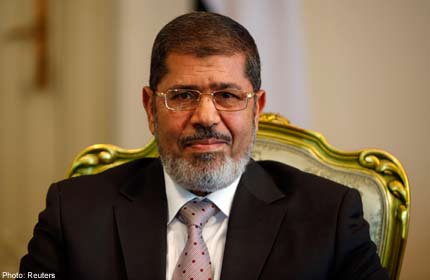
EDITORIAL
The dramatic removal from power of Egyptian President Mohamed Mursi would be met with consternation by those who believe that legitimately elected leaders should not be overthrown by mobs or deposed by the military.
It was that combination of popular-army power that terminated Mr Mursi's term of office on Wednesday, just a year after he came to power in the wake of a national democratic movement that had ousted his autocratic predecessor, Hosni Mubarak, in 2011.
While reservations about the overthrow of freely elected leaders are in order, they must not overshadow the profound truth that just as important as elections is how leaders behave once they are in power.
Mr Mursi fell because, in the eyes of millions of Egyptians, he had betrayed the Arab Spring that had installed him in office. Essentially, the second phase of that revolution has now begun in the Arab world's linchpin state.
Economic ineptitude played a role in Mr Mursi's downfall. He offered no long-term plans to pull Egypt out of the morass it was sinking into as the currency came under pressure, there were fuel shortages and power cuts, wheat supplies became a cause for concern, and tourism was hurt.
Instead, adding political insult to economic injury, he arrogated to himself sweeping powers to "protect" Egypt and legislate free of judicial oversight or review. Although he retracted many of those changes, fundamental differences persisted between the Muslim Brotherhood and secularists over Egypt's constitutional future.
Mr Mursi's cardinal fault was to believe that the interests of the Brotherhood were synonymous with those of the people. No party, no matter how crucial its role in overthrowing an authoritarian government, should supplant the state in a democratic system.

It was thus a matter of time before the spirit of the anti-Mubarak revolution re-asserted itself and dethroned his successor. It is sad that Egypt's democratic process has been derailed this way, but it should be easier to put it back on track now that the Brotherhood's capture of power from within is over.
Yet, the Brotherhood is no spent force. It must not be forced underground to subvert political change and prepare the ground for civil war.
It is essential that the road map to Egypt's political future, particularly in the transitional phase under way, be as inclusive as possible.
National reconciliation should be the top priority of all the parties, not the settling of scores on the streets.
Reconciliation is necessary not only for economic reconstruction but also to preserve stability in a region which is already under stress from the civil war in Syria and lingering problems in Libya and Iraq.

